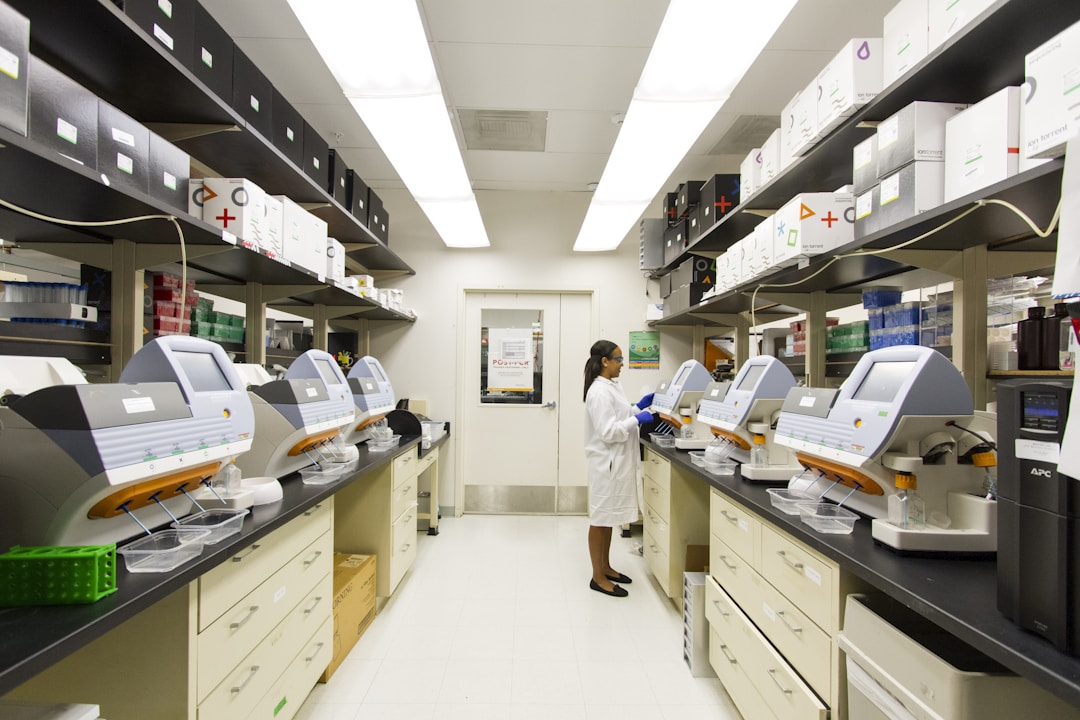
The healthcare industry is vast, encompassing a multitude of professions beyond the well-known doctors and nurses. Many healthcare workers operate beyond the spotlight, offering vital services that ensure the well-being of patients. From the technicians who analyze complex lab results to the administrators who keep medical facilities running smoothly, these unsung heroes play essential roles in the intricate web of healthcare. In this article, we’ll shine a light on some of these lesser-known healthcare providers and the important contributions they make to health and wellness.
Exploring the World of Allied Health Professionals

Allied health professionals form a critical support system within healthcare. These professionals include radiologic technologists, who capture images to aid in diagnosis, and physical therapists, who assist patients in regaining mobility and strength. Their expertise is often specialized and focused on one critical aspect of patient care.
Speech-language pathologists are another group of allied health professionals. They work tirelessly to help individuals with communication disorders, which can significantly impact a person’s quality of life. Their ability to help patients relearn how to speak and swallow is nothing short of life-changing.
Moreover, the rising demand for non-surgical treatment options for chronic pain and mobility issues has brought more attention to viscosupplement injections. These treatments, administered by knowledgeable allied healthcare providers, underscore the importance of continual innovation in patient care strategies.If you aren’t interested in becoming an allied health professional, it’s important to also acknowledge that there are roles that make or break the patient care experience. For instance, a medical-surgical nurse makes great strides in nurturing patients in surgical units. And there are many med surg travel nurse jobs available that allow nurses to travel to different areas of the country in order to fill staff shortages. Overall, both allied and non-allied healthcare providers are essential to the system and aid in maintaining public health.
Uncovering the Contributions of Medical Laboratory Scientists
Peering through the microscope, medical laboratory scientists are crucial detectives in the world of healthcare. They analyze a myriad of biological samples, providing data that inform diagnoses and treatment plans. Without their precise work, many conditions would remain a mystery, leaving doctors to guess at the right course of action.
These professionals operate sophisticated equipment, staying abreast of technological advancements to enhance accuracy and efficiency. The dedication of these scientists to quality and detail ensures that every test result is as reliable as possible. In often high-pressure situations, their commitment to excellence underpins the trust healthcare providers place in diagnostic data.
Medical laboratory scientists also play a pivotal role in the monitoring of infectious diseases. Their ability to detect pathogens quickly and accurately is indispensable in the management of outbreaks and in the prevention of epidemics. When public health is at stake, their expertise becomes even more pronounced, influencing containment strategies and guiding public health policies.
In addition to frontline diagnostics, the research conducted by laboratory scientists often leads to groundbreaking discoveries. From novel testing methodologies to insights into disease mechanisms, their contributions extend far beyond the lab bench, impacting future healthcare practices and patient care.
Discovering the Benefits of Health Informatics Specialists

At the intersection of healthcare and information technology lie health informatics specialists, the unsung architects of medical information systems. Their work involves the design, implementation, and optimization of electronic health records (EHRs), which centralize patient data and democratize access for healthcare professionals. Their expertise contributes to a more informed and efficient healthcare ecosystem.
The importance of data security in healthcare cannot be understated, and health informatics specialists are the guardians of this domain. With the rise of cyber threats, these professionals ensure that patient data is protected from unauthorized access, preserving the trust between patients and healthcare providers. Their role is integral to the confidentiality and integrity of sensitive medical information.
Moreover, as big data becomes an increasingly powerful tool in medicine, health informatics specialists are at the forefront of its application. By analyzing large data sets, they can uncover patterns and trends that lead to improvements in patient care, disease prevention, and even the management of healthcare costs. Their analytical skills can quite literally be life-saving.
Altogether, these professionals embody the depth and diversity of the healthcare sphere, each contributing uniquely to the functionality and evolution of medical services. Their diverse roles underscore the importance of teamwork in delivering comprehensive healthcare. By acknowledging and valuing each component in the healthcare delivery system, we can continue to enhance patient care and promote health in our communities.
1192 Views












